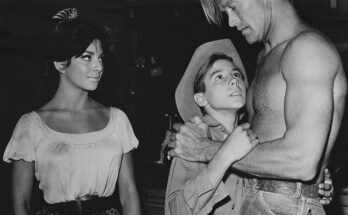When I moved to this quiet, tree-lined neighborhood, I thought I was finally escaping the chaos of my old life. After years as a journalist in a bustling city newsroom, I craved serenity. The streets were lined with maple trees, their silvery leaves whispering in the breeze. The old houses, some with peeling paint and others blooming with vibrant flowers, felt like they held stories waiting to be uncovered.
The first evening I was unpacking, I noticed her—a little girl standing at the bus stop across the street. She couldn’t have been older than eight, wearing an oversized red jacket and clutching a red bag to her chest as if it contained her entire world. Her small, still figure caught my eye. I assumed she was waiting for someone.
The next evening, she was there again. And the evening after that. By the third night, curiosity got the better of me. I decided to step outside and ask if she was okay. But as I approached, she turned and bolted down the street, her red bag bouncing against her back.
The next morning, while eating breakfast, I saw something on my doorstep. When I opened the door, I found her red bag sitting there, silent and heavy. I picked it up and brought it inside. Inside were tiny handmade toys—bottle-cap houses, fabric dolls, wire cars. At the bottom of the bag was a crumpled note in a child’s handwriting:
“My name is Libbie. I make these toys to pay for my grandma’s medicine. She’s very sick, and I don’t know what to do. My mom and dad died in a car crash three months ago. Please, if you can, buy them. Thank you.”
The words crushed me. Tears filled my eyes as I imagined the weight of her world, carried on such small shoulders. I placed cash into the bag and carefully arranged the toys on my table. They weren’t just toys—they were pieces of her heart, crafted with resilience and hope.
That evening, I waited by the window, hoping she would return. When I saw her small figure creeping up my yard, I stepped outside. She froze, looking ready to run, but I spoke gently. “It’s okay. You don’t have to run this time.” Slowly, she approached. Her eyes darted nervously between me and the bag.
I invited her inside and offered her cookies and milk. She hesitated but finally nodded. Sitting at my table, she clutched the mug with both hands. As she spoke, her story unraveled. Her parents had died suddenly, leaving her to care for her ill grandmother. She stood at the bus stop every evening because it reminded her of her parents, who used to pick her up from school there.
Her words carried a depth of loss no child should endure, but they also revealed her incredible strength. I promised her she wasn’t alone anymore and that we would figure things out together.
Over the next few months, Libbie became part of my life. With the help of my boyfriend, Dave, we provided care for her grandmother and gave Libbie a safe place to call home. We worked to get her back in school, where she thrived. Her passion for making toys turned into something beautiful. With Dave’s help, we created a website where she could sell her creations, and the response was overwhelming. Her toys became symbols of resilience and love.
A year later, Dave and I got married, and we officially adopted Libbie. Her grandmother moved in with us, and her medical needs were fully covered. Libbie’s once-lonely evenings at the bus stop became cherished memories of her parents rather than moments of longing.
Some evenings, I’d still find her standing at the bus stop, holding a new red bag. When I asked why she still went there, she smiled. “It’s nice to remember the good times,” she said. “But it’s even better knowing I can come home to you.”
Libbie’s story changed my life. It reminded me that family isn’t always about blood—it’s about love, compassion, and the connections we choose to nurture. That little girl with the red bag taught me the true meaning of home.


